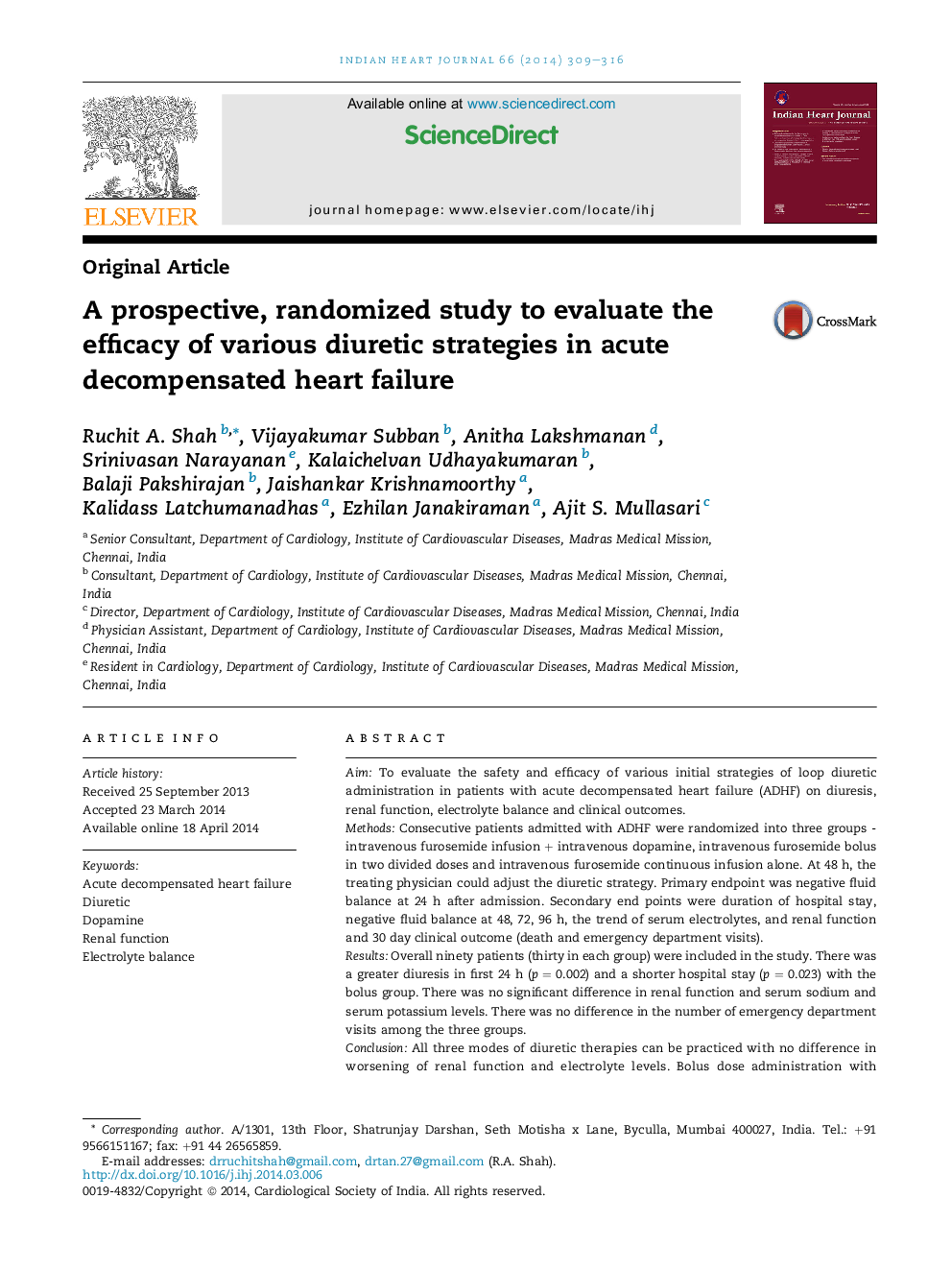| Article ID | Journal | Published Year | Pages | File Type |
|---|---|---|---|---|
| 2927880 | Indian Heart Journal | 2014 | 8 Pages |
AimTo evaluate the safety and efficacy of various initial strategies of loop diuretic administration in patients with acute decompensated heart failure (ADHF) on diuresis, renal function, electrolyte balance and clinical outcomes.MethodsConsecutive patients admitted with ADHF were randomized into three groups - intravenous furosemide infusion + intravenous dopamine, intravenous furosemide bolus in two divided doses and intravenous furosemide continuous infusion alone. At 48 h, the treating physician could adjust the diuretic strategy. Primary endpoint was negative fluid balance at 24 h after admission. Secondary end points were duration of hospital stay, negative fluid balance at 48, 72, 96 h, the trend of serum electrolytes, and renal function and 30 day clinical outcome (death and emergency department visits).ResultsOverall ninety patients (thirty in each group) were included in the study. There was a greater diuresis in first 24 h (p = 0.002) and a shorter hospital stay (p = 0.023) with the bolus group. There was no significant difference in renal function and serum sodium and serum potassium levels. There was no difference in the number of emergency department visits among the three groups.ConclusionAll three modes of diuretic therapies can be practiced with no difference in worsening of renal function and electrolyte levels. Bolus dose administration with its rapid volume loss and shorter hospital stay might be a more effective diuretic strategy.
